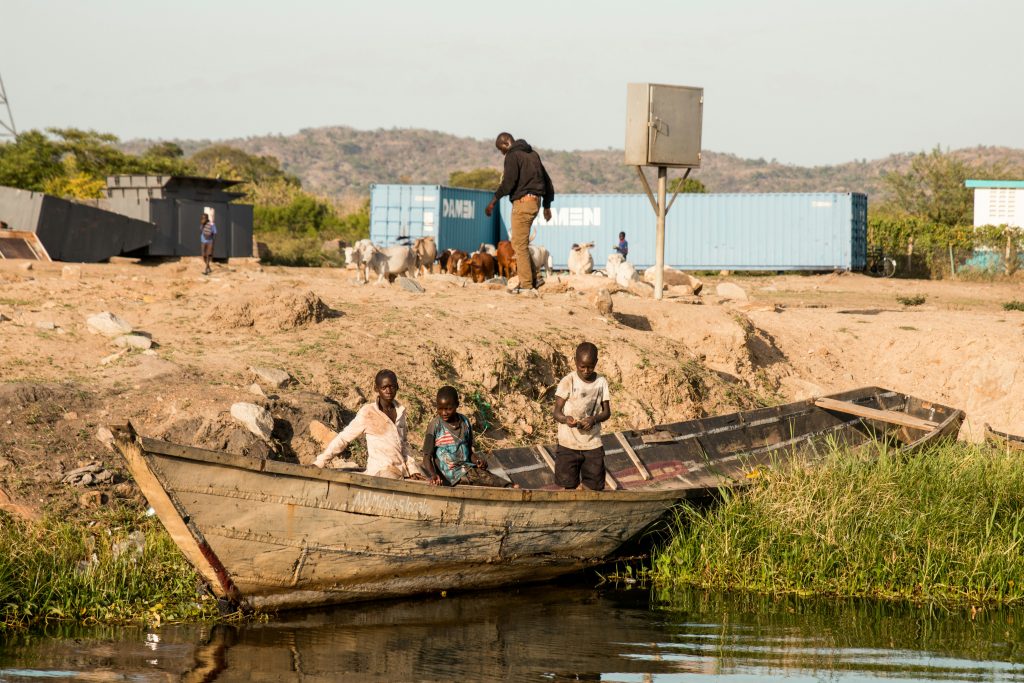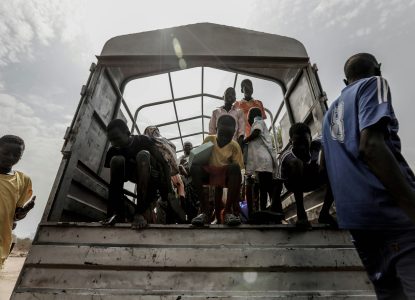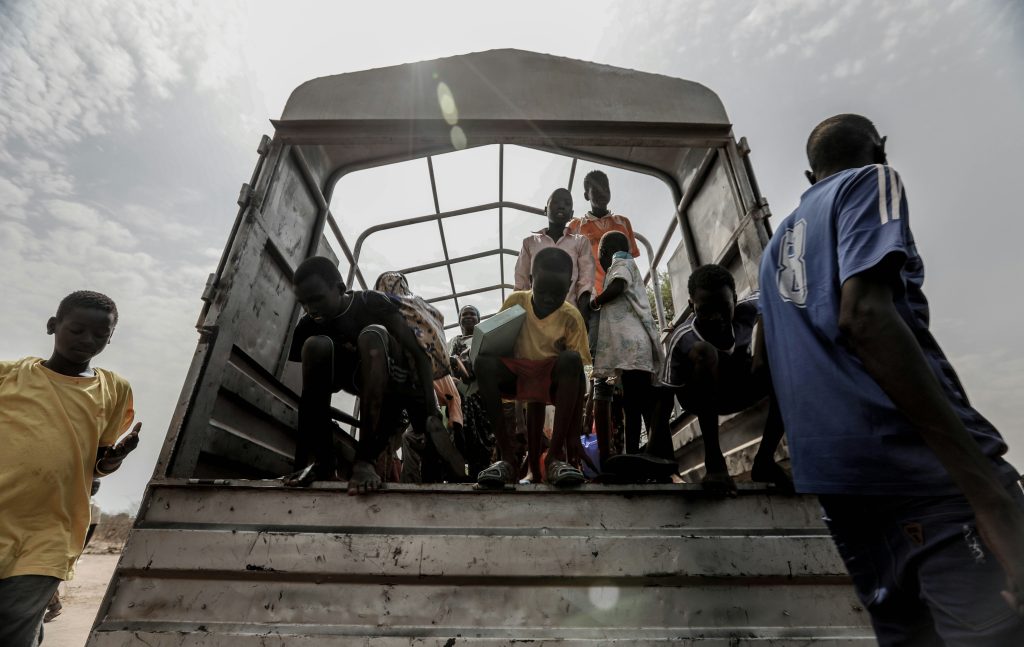By JoAnne Wadsworth, Communications Consultant, G20 Interfaith Forum.
– – –
On July 31, 2025, the G20 Interfaith Forum hosted its fourth “Faith in Action: Reflections” webinar, focusing on “Migration and Refugee Movements, Human Trafficking, and Modern Slavery.” The discussion brought together anti-trafficking practitioners and advocates to examine how faith communities can combat what speakers called a “crime hidden in plain sight.” The panel featured Ursula Mdaka, representing A21, a global NGO that assists victims of human trafficking and operates South Africa’s national human trafficking hotline; Raksha Singh Semnarayan, a legal practitioner specializing in social justice issues with particular interest in how communities and religion can address social problems; and Winnie Mutevu, an award-winning human rights defender and development manager with over 14 years of experience in the counter-trafficking sector, currently leading advocacy at Awareness Against Human Trafficking in Kenya. The conversation was moderated by Sandile Makasi and Yashika Singh.
The Staggering Scale of Modern Slavery
The speakers revealed the shocking scope of contemporary human trafficking, with 50 million people currently enslaved worldwide and the industry generating approximately 258 trillion Rand annually. Mdaka explained that human trafficking often goes unrecognized because it masquerades as other social issues – from gender-based violence to seasonal labor – making it a crime that exists “hidden in plain sight.”
“Human trafficking is exploitation of a person for their labor services or commercial services. It affects millions of men, women, and children all around the world… it is known as a crime that is hidden in plain sight because it’s often neglected or ignored, or it’s seen as something else besides human trafficking.” – Ursula Mdaka
Mdaka detailed the legal framework that defines trafficking through three elements: the act (recruitment), the means (abuse of vulnerability), and the purpose (exploitation). She emphasized how traffickers exploit vulnerability at every level, creating cycles of victimization where survivors, without proper support, often become re-victimized due to their continued vulnerable state.

Historical Roots and Contemporary Manifestations
Singh traced the historical evolution from slavery to modern trafficking, connecting contemporary exploitation to centuries-old systems of power and ownership. She explained how the concept of humans owning other humans originated from beliefs that power came from ownership and financial gain, leading to the control of lands, people, and entire states. Singh shared a deeply personal account that illustrated the power of human connection even in the most dangerous circumstances.
Singh recounted how in 2023, her family was hijacked and kidnapped. Throughout the ordeal, she continuously spoke to their captors, appealing to their sense of family and humanity. She told them their mothers wouldn’t be proud of their actions and asked them to see her as a mother figure and her children as their own siblings. This human connection proved effective – one of the perpetrators even returned her wallet (after removing the cash) and addressed her as “Ma.” Singh used this experience to demonstrate how appeals to shared humanity can transcend even criminal situations, emphasizing that such human-centered approaches are essential in combating trafficking.
“I kept on speaking to the perpetrators and telling them that ‘Your mom won’t be proud of what you’re doing. Look at me as your mum, and look at my children as your children’… and appealed to their sense of humanity, so that they would identify the human in me, and as I do in them, and that would probably prevent them from harming us. And it worked.” – Raksha Singh Semnarayan
Singh emphasized that while international legal frameworks now condemn human trafficking, the fundamental challenge lies in community-level implementation. She argued that faith communities must engage with these issues as part of their core religious duty, noting that caring for vulnerable neighbors represents the essence of religious teaching across traditions. She stressed that the same world that once sanctioned slavery has now evolved to condemn it collectively, but this progress requires active community engagement to become truly effective.
Faith Communities as Frontline Actors
Mutevu positioned faith communities as uniquely equipped to combat trafficking through what the UN calls the “4 P’s” framework: prevention, protection, prosecution, and partnerships. She emphasized that faith leaders serve as trusted voices in communities where trust has been systematically betrayed by traffickers.
“Faith leaders really are trusted voices in the communities. When it comes to human trafficking, trust is highly betrayed by traffickers. And so, looking into where faith leaders come in, already being a trusted voice, they really have an open door to engage with the communities.” – Winnie Mutevu
Mutevu stressed that faith communities occupy a unique position at the grassroots level, often being the first to hear about family distress, migration plans, and community abuse. This positioning makes them natural first responders and essential partners in comprehensive anti-trafficking efforts.
The Intersection with Migration and Xenophobia
The discussion revealed how refugees and migrants face compounded vulnerabilities, with xenophobia creating additional barriers to identifying and assisting trafficking victims. Mdaka shared her organization’s experience working with foreign nationals in South Africa, where victims are often seen as “illegal foreigners” first rather than as human beings who have been exploited.
“What we’ve noticed is that there’s just always this immediate stigma… they’re always seen first as a foreigner instead of a human being that’s being exploited.” – Ursula Mdaka
Singh highlighted recent examples of foreigners being denied basic healthcare in South African hospitals, connecting this discrimination to broader patterns of dehumanization that enable trafficking. The speakers emphasized that refugee camps are known breeding grounds for traffickers, creating situations where displaced people face exploitation whether inside or outside official assistance systems.
A Call for Religious Community Action
The webinar concluded with a direct challenge to faith communities, questioning whether religious institutions are doing enough to address trafficking despite having principles of human dignity central to their teachings. The speakers argued that faith communities must move beyond internal religious concerns to actively engage with how humans treat each other in society.
“Are we too busy praying in temples and churches, and worrying about such matters, to deal with the core issue of how we treat each other?” – Yashika Singh
Practical Actions for Faith Communities
The speakers provided concrete examples of how faith communities can engage in anti-trafficking work, emphasizing education, direct service, and systemic advocacy:
Successful Examples:
- A21’s South Africa office operates a 24/7 national human trafficking hotline and uses both phone and chatbot systems to assist victims and community members reporting suspicious activities
- Churches serving as safe havens where trafficking victims can seek help, as demonstrated by Mdaka’s case study of a sex trafficking survivor who found safety in a church and was subsequently rescued and rehabilitated
- Faith-based organizations running nationwide awareness campaigns and creating networks specifically focused on combating human trafficking
- Religious institutions providing shelters and serving as victim support hubs with referral pathways for comprehensive assistance
Concrete Action Steps:
- Educate and equip communities: Learn trafficking indicators, know reporting procedures, and conduct awareness presentations in schools, workplaces, and community organizations
- Create safe spaces: Establish churches, mosques, and temples as recognized safe havens where victims can seek immediate help
- Provide direct services: Offer emergency shelter, spiritual counseling, medical assistance referrals, and reintegration support for survivors
- Build partnerships: Collaborate with law enforcement, social services, and specialized anti-trafficking organizations for comprehensive victim assistance
- Advocate for policy change: Use moral authority to push governments and law enforcement to prioritize anti-trafficking efforts and adopt more humane responses
- Address root causes: Provide vocational training, education opportunities, and social services that reduce vulnerabilities to trafficking
- Combat xenophobia: Actively work against discrimination toward migrants and refugees, recognizing their heightened vulnerability to exploitation
- Develop reporting systems: Train congregations to recognize trafficking indicators and know how to safely report suspected cases to appropriate authorities
The webinar emphasized that faith communities cannot remain passive observers of human trafficking, but must become active frontline actors in protecting the most vulnerable members of society, viewing this work as a fundamental expression of their religious values and moral obligations. As South Africa leads the G20 in 2025 with themes of Solidarity, Equality, and Sustainability, the discussion highlighted how faith communities can embody these principles by addressing human trafficking as both a local reality and global challenge that requires coordinated international response – making the upcoming G20 Interfaith Forum in Cape Town a critical opportunity to transform these conversations into concrete action.
– – –
JoAnne Wadsworth is a Communications Consultant for the G20 Interfaith Forum Association and Editor of the Viewpoints Blog.



